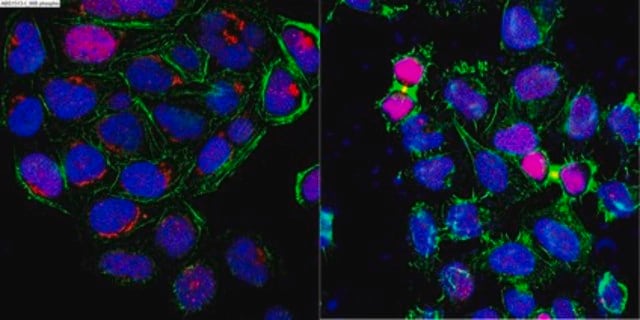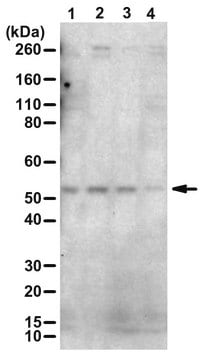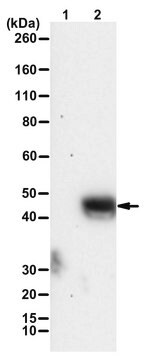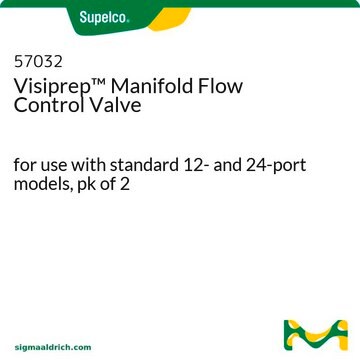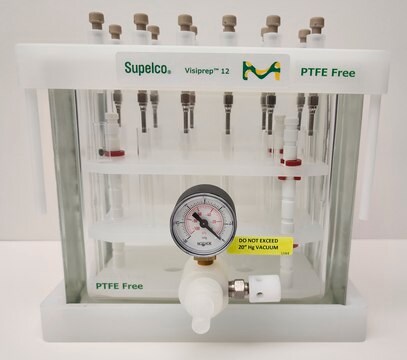About This Item
affinity binding assay
western blot: suitable
Recommended Products
biological source
rabbit
Quality Level
conjugate
unconjugated
antibody form
purified antibody
antibody product type
primary antibodies
clone
polyclonal
mol wt
observed mol wt ~28 kDa
purified by
affinity chromatography
species reactivity
human
species reactivity (predicted by homology)
mouse, chimpanzee, hamster, rat
packaging
antibody small pack of 100 μg
technique(s)
affinity binding assay: suitable
western blot: suitable
isotype
IgG
epitope sequence
N-terminal half
Protein ID accession no.
UniProt accession no.
shipped in
2-8°C
target post-translational modification
phosphorylation (pSer67)
Gene Information
human ... UBB(7314)
General description
Specificity
Immunogen
Application
Evaluated by Western Blotting with a construct containing GST-tagged recombinant fragment of Ubiquitin phosphorylated on serine 57.
Western Blotting Analysis (WB): A 1:1,000 dilution of this antibody detected a construct containing GST-tagged recombinant Ubiquitin phosphorylated on serine 57, but did not react with non-phosphorylated construct. (Phospho-Ubiquitin construct: Courtesy of Dr. Jesse Rinehart, Yale University, School of Medicine).
Tested Applications
Affinity Binding Assay: A representative lot of this antibody bound phospho-Ubiquitin (ser57) peptide with a KD of 1.0 x 10-12 in an affinity binding assay.
Note: Actual optimal working dilutions must be determined by end user as specimens, and experimental conditions may vary with the end user
Physical form
Storage and Stability
Other Notes
Disclaimer
Not finding the right product?
Try our Product Selector Tool.
Storage Class Code
12 - Non Combustible Liquids
WGK
WGK 1
Certificates of Analysis (COA)
Search for Certificates of Analysis (COA) by entering the products Lot/Batch Number. Lot and Batch Numbers can be found on a product’s label following the words ‘Lot’ or ‘Batch’.
Already Own This Product?
Find documentation for the products that you have recently purchased in the Document Library.
Our team of scientists has experience in all areas of research including Life Science, Material Science, Chemical Synthesis, Chromatography, Analytical and many others.
Contact Technical Service